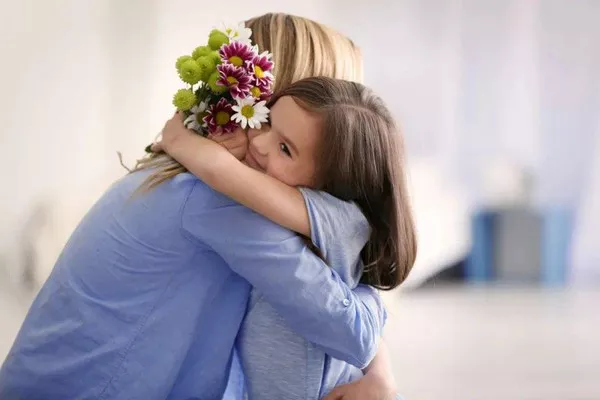Attention-Deficit/Hyperactivity Disorder (ADHD) is a neurodevelopmental disorder characterized by difficulties in sustaining attention, controlling impulses, and regulating hyperactivity. While often associated with children, ADHD can persist into adulthood, impacting various aspects of life, including relationships. Individuals with ADHD may exhibit symptoms such as forgetfulness, impulsivity, and emotional dysregulation, which can influence their interactions and expressions of love.
ADHD and Relationships
Navigating romantic relationships can be particularly challenging for individuals with ADHD, as the symptoms of the disorder can impact communication, organization, and emotional regulation. However, it’s important to recognize that ADHD also brings strengths to relationships, such as spontaneity, creativity, and a deep capacity for empathy. Understanding and accommodating the unique dynamics of ADHD can foster stronger, more resilient partnerships.
Expression of Love
Individuals with ADHD may express love in distinctive ways, characterized by intensity, spontaneity, and creativity. They may shower their partner with affectionate gestures, such as spontaneous gifts, love notes, or grand romantic gestures. Additionally, individuals with ADHD often exhibit hyperfocus, becoming deeply engrossed in their partner and lavishing them with undivided attention and admiration. Creative expressions of affection, such as artwork, music, or poetry, may also serve as outlets for their intense emotions and love.
Communication
Clear and patient communication is essential in navigating relationships with ADHD. Individuals with ADHD may struggle with forgetfulness, impulsivity, and difficulty organizing their thoughts, making it crucial for both partners to practice active listening and patience. Utilizing strategies such as repeating important information, using visual aids, and establishing routines can help mitigate misunderstandings and strengthen communication channels.
See Also: What happens when a person doesn’t get enough love?
Managing Expectations
Setting realistic expectations is key to fostering understanding and acceptance in relationships affected by ADHD. Partners should recognize that the expression of love may not always conform to conventional norms and be open to embracing the unique qualities and strengths that ADHD brings to the relationship. Flexibility, empathy, and a willingness to adapt can help cultivate a supportive and harmonious partnership.
Support and Affirmation
Frequent displays of affection and verbal affirmations play a vital role in reassuring partners with ADHD of their value and importance in the relationship. Expressions of love, such as hugs, kisses, and words of encouragement, can provide much-needed validation and reassurance. Additionally, demonstrating understanding and acceptance of ADHD-related challenges can foster a sense of security and emotional intimacy in the relationship.
Relationship Strategies
Both partners can benefit from implementing strategies to manage ADHD symptoms effectively and promote relationship success. Visual reminders, such as calendars, to-do lists, and alarms, can help individuals with ADHD stay organized and on track. Scheduling quality time together and prioritizing activities that accommodate ADHD-related strengths and interests can strengthen the bond between partners. Seeking professional help, such as therapy or counseling, can provide additional support and guidance in navigating the challenges of ADHD in relationships.
Personal Stories
Personal anecdotes and stories can offer invaluable insights and relatable experiences for readers navigating relationships affected by ADHD. Hearing firsthand accounts of triumphs, challenges, and moments of connection can foster empathy, understanding, and solidarity among individuals facing similar circumstances. Sharing personal stories can also highlight the resilience, creativity, and love that can flourish in relationships impacted by ADHD.
Resources
For further reading and support, consider exploring the following resources:
ADHD support groups: Joining a support group for individuals with ADHD and their partners can provide a sense of community, understanding, and shared experiences.
Counseling services: Seeking therapy or couples counseling can offer guidance, tools, and strategies for navigating the challenges of ADHD in relationships.
Educational materials: Books, articles, and online resources focusing on ADHD and relationships can provide valuable insights and practical advice for fostering healthy, fulfilling partnerships.
ADHD advocacy organizations: Organizations dedicated to raising awareness and supporting individuals with ADHD, such as CHADD (Children and Adults with Attention-Deficit/Hyperactivity Disorder), offer resources, information, and community connections for individuals and their loved ones.
Conclusion
In conclusion, navigating romantic relationships affected by ADHD requires understanding, patience, and compassion. By recognizing and embracing the unique qualities and strengths that ADHD brings to the relationship, partners can cultivate deeper intimacy, connection, and resilience. Through clear communication, realistic expectations, and ongoing support, individuals can navigate the challenges of ADHD in relationships with empathy, understanding, and love.
Related topics:



























